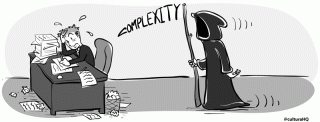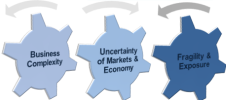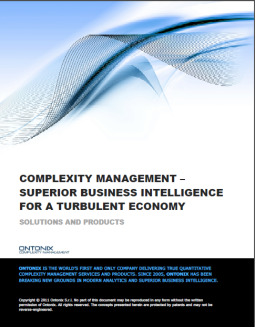Unintended consequences:: who’s kidding who?
Thursday, 3 January, 2013 Leave a comment
A parable from the 19th Century that the insurance industry would do well to remember as it (directly and indirectly) presides over a ‘system’ whose man-made complexity – created to strip value from its customers/suppliers in order to sustain its own, spiralling and unregulated, greed – is the biggest single threat to its survival own.
PLEASE follow the links (below) in relation to opportunity costs and …unintended consequences for further explanation. Both are economically significant, yet, apparently, too readily overlooked by acolytes of Irresponsible Capitalism. Yet another entry for the bulging category of inconvenient truths to be swept under the proverbial Corporate carpet!
Opportunity costs: refers to efficient use of resources (does the term ‘peak oil’ mean anything to you!?)
“Anyone who believes in indefinite growth on a physically finite planet is either mad, or an economist.”
-David Attenborough
Law of unintended consequences: is particularly relevant to those of us with an ‘interest’ in complex systems, risk, complexity and resilience. For, although recognised in the days of Adam Smith and the Scottish Enlightenment, it is too readily overlooked. Now that’s bad enough BUT, when you recognise what we now know about dynamic, non-linear, business [digital] systems, IT IS CRIMINAL! As is the ongoing practise of teaching economic theory that is known to be flawed!!!
…the consequences of policies will depend critically on the nature of the interdependences














